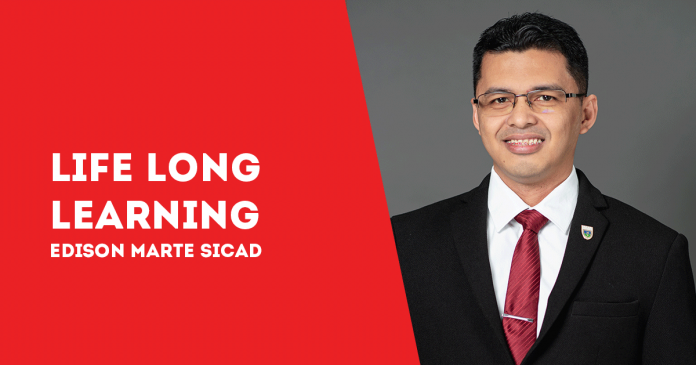
BY EDISON MARTE SICAD
“But the point, when you come to it, is a very bare little place, a very meager little affair. It’s extraordinary how meager the point is once you’ve come to it…A lead pencil has a point, an argument may have a point, remarks may be pointed…But where is the point of life?”—D.H. Lawrence
The gift of the problem
You can be stoic about it: contextualize the burden of a problem as a learning opportunity. You can rationalize the pain away, and experience the joy in suffering. Or you can choose detachment. Be nonchalant.
Our fear can make us worry. Our concerns can make us feel victimized. Our problems can lead to useless anxieties and doubts. Who wouldn’t want a problem-free life?
But some philosophers (contrarians) embrace such challenges; they get excited by the problems and consider the difficulties as opportunities to be really in charge and think of ways to find solutions. Or find other people to solve the problems.
My best learning experiences came from failures and disappointments, from doing the things I don’t want to do: waking up early, staying up late, studying more, admitting mistakes, being reprimanded, bringing work at home, working without being paid.
Of course, I complain. And question the unfairness of life. On hindsight, I am grateful of the problems given to me—or problems I created myself.
To be really in charge of your life
Allow me to be redundant about this. Think about it: to be really, really in charge of your decisions and the way you live your life. No blaming others, no excuses, no self-pity: to immediately jump into problem-solving mode with the thrill and expectation that what you are undergoing right now will improve your life.
You can sense yourself growing by owning the problem and being energized by claiming accountability no matter what, no matter who.
But why do some people get so depressed to the point of ending their very lives? How did it lead into such a point? An individual losing control of his own self except the will to end his life. Isn’t that in itself a sign of hope? That you are still in control? If you can still decide to end it all, then it is possible to decide in a different manner knowing that you are in control. You can decide to live your life and fight it out.
Helplessness is a choice
Make no mistake about it. You are in charge. This truth can lead to self-pity: that you are a victim of circumstance; or self-appointment: that you are king and can rule yourself towards self-actualization.
With your choices you can arrive at a dismal outcome: an outcome that is not worth living, not worth suffering. With your decisions you can create a compelling future: a future worthy of your dignified self; a destination worthy of the journey.
A compelling future
The point of life is to live it to the fullest. To live it to the fullest means to learn and grow regardless of any situation: to remain hopeful and courageous of our ability; to have faith in our own belief; to create a compelling future that no amount of problems in the present can stop you and no regret and mistakes in the past can discourage you.
“Human beings are strong because we can have the ability to change ourselves!” — Saitama/PN







